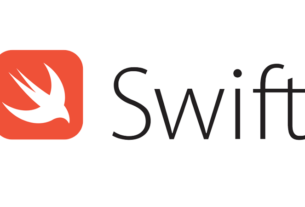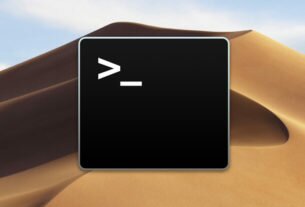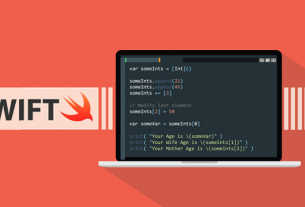Question or problem with Swift language programming:
I’m trying to get the first and last day of the month in swift.
So far I have the following:
let dateFormatter = NSDateFormatter()
let date = NSDate()
dateFormatter.dateFormat = "yyyy-MM-dd"
let calendar = NSCalendar.currentCalendar()
let components = calendar.components([.Year, .Month, .Day, .Hour, .Minute, .Second], fromDate: date)
let month = components.month
let year = components.year
let startOfMonth = ("\(year)-\(month)-01")
But I’m not sure how to get the last date. Is there a built in method I’m missing? Obviously it has to take into account leap years etc.
How to solve the problem:
Solution 1:
You get the first day of the month simply with
let components = calendar.components([.Year, .Month], fromDate: date) let startOfMonth = calendar.dateFromComponents(components)! print(dateFormatter.stringFromDate(startOfMonth)) // 2015-11-01
To get the last day of the month, add one month and subtract one day:
let comps2 = NSDateComponents() comps2.month = 1 comps2.day = -1 let endOfMonth = calendar.dateByAddingComponents(comps2, toDate: startOfMonth, options: [])! print(dateFormatter.stringFromDate(endOfMonth)) // 2015-11-30
Alternatively, use the rangeOfUnit method which gives you
the start and the length of the month:
var startOfMonth : NSDate? var lengthOfMonth : NSTimeInterval = 0 calendar.rangeOfUnit(.Month, startDate: &startOfMonth, interval: &lengthOfMonth, forDate: date)
For a date on the last day of month, add the length of the month minus one second:
let endOfMonth = startOfMonth!.dateByAddingTimeInterval(lengthOfMonth - 1)
Updated for Swift5:
extension Date {
var startOfDay: Date {
return Calendar.current.startOfDay(for: self)
}
var startOfMonth: Date {
let calendar = Calendar(identifier: .gregorian)
let components = calendar.dateComponents([.year, .month], from: self)
return calendar.date(from: components)!
}
var endOfDay: Date {
var components = DateComponents()
components.day = 1
components.second = -1
return Calendar.current.date(byAdding: components, to: startOfDay)!
}
var endOfMonth: Date {
var components = DateComponents()
components.month = 1
components.second = -1
return Calendar(identifier: .gregorian).date(byAdding: components, to: startOfMonth)!
}
func isMonday() -> Bool {
let calendar = Calendar(identifier: .gregorian)
let components = calendar.dateComponents([.weekday], from: self)
return components.weekday == 2
}
}
Solution 2:
Swift 3 and 4 drop-in extensions
This actually gets a lot easier with Swift 3+:
- You can do it without guard (you could if you wanted to, but because
DateComponentsis a non-optional type now, it’s no longer necessary). - Using iOS 8’s
startOfDayForDate(nowstartOfDay), you don’t need to manually set the time to 12pm unless you’re doing some really crazy calendar calculations across time zones.
It’s worth mentioning that some of the other answers claim you can shortcut this by using Calendar.current.date(byAdding: .month, value: 0, to: Date())!, but where this fails, is that it doesn’t actually zero out the day, or account for differences in timezones.
Here you go:
extension Date {
func startOfMonth() -> Date {
return Calendar.current.date(from: Calendar.current.dateComponents([.year, .month], from: Calendar.current.startOfDay(for: self)))!
}
func endOfMonth() -> Date {
return Calendar.current.date(byAdding: DateComponents(month: 1, day: -1), to: self.startOfMonth())!
}
}
print(Date().startOfMonth()) // "2018-02-01 08:00:00 +0000\n"
print(Date().endOfMonth()) // "2018-02-28 08:00:00 +0000\n"
Solution 3:
With Swift 3 & iOS 10 the easiest way I found to do this is Calendar‘s dateInterval(of:for:):
guard let interval = calendar.dateInterval(of: .month, for: Date()) else { return }
You can then use interval.start and interval.end to get the dates you need.
Solution 4:
Swift 3
Many date example for :
Last 6 month,
last 3 month,
yesterday, last 7 day, last 30 day, previous month,
current month start & end, last month start & end date
let startDate = dateFormatter.string(from: Date().getThisMonthStart()!) let endDate = dateFormatter.string(from: Date().getThisMonthEnd()!) extension Date { func getLast6Month() -> Date? { return Calendar.current.date(byAdding: .month, value: -6, to: self) } func getLast3Month() -> Date? { return Calendar.current.date(byAdding: .month, value: -3, to: self) } func getYesterday() -> Date? { return Calendar.current.date(byAdding: .day, value: -1, to: self) } func getLast7Day() -> Date? { return Calendar.current.date(byAdding: .day, value: -7, to: self) } func getLast30Day() -> Date? { return Calendar.current.date(byAdding: .day, value: -30, to: self) } func getPreviousMonth() -> Date? { return Calendar.current.date(byAdding: .month, value: -1, to: self) } // This Month Start func getThisMonthStart() -> Date? { let components = Calendar.current.dateComponents([.year, .month], from: self) return Calendar.current.date(from: components)! } func getThisMonthEnd() -> Date? { let components:NSDateComponents = Calendar.current.dateComponents([.year, .month], from: self) as NSDateComponents components.month += 1 components.day = 1 components.day -= 1 return Calendar.current.date(from: components as DateComponents)! } //Last Month Start func getLastMonthStart() -> Date? { let components:NSDateComponents = Calendar.current.dateComponents([.year, .month], from: self) as NSDateComponents components.month -= 1 return Calendar.current.date(from: components as DateComponents)! } //Last Month End func getLastMonthEnd() -> Date? { let components:NSDateComponents = Calendar.current.dateComponents([.year, .month], from: self) as NSDateComponents components.day = 1 components.day -= 1 return Calendar.current.date(from: components as DateComponents)! } }
Solution 5:
Swift 4
If you only need the ordinal day:
func lastDay(ofMonth m: Int, year y: Int) -> Int { let cal = Calendar.current var comps = DateComponents(calendar: cal, year: y, month: m) comps.setValue(m + 1, for: .month) comps.setValue(0, for: .day) let date = cal.date(from: comps)! return cal.component(.day, from: date) } lastDay(ofMonth: 2, year: 2018) // 28 lastDay(ofMonth: 2, year: 2020) // 29



